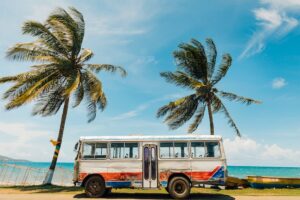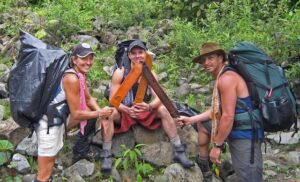Class analysis has been mostly absent from studies of Belize, with the notable exception of Assad Shoman’s work on indigenous political economy.
Tourism is Belize’s primary industry and main source of foreign exchange. Due to its reliance on services – specifically accommodations and attractions – its vulnerability increases when economic conditions in source countries become adverse.
Social Class
Tourism in Belize has an immense impact on its economy, providing jobs in areas like agriculture and manufacturing. Tourism also allows visitors from other countries to learn about Belizean culture, language, and food; however, tourism has raised concerns regarding the exploitation of indigenous cultures; to address this concern education is necessary so tourists are aware of the effects their actions are having on economic development.
Belize has experienced relatively stable economic development since achieving independence from Britain in 1981, yet growth has been uneven. Being such a small economy with limited production capabilities, fluctuations in international economies often impact Belize. Furthermore, an ever-increasing debt load and declining commodity export preferences, it creates an unstable situation.
As it stands, the government has made significant efforts to diversify the economy; however, they have yet to achieve full success. They should increase the role of productive industries like agriculture and manufacturing while decreasing reliance on service sector industries with high levels of volatility. In addition, creating opportunities for small firms is also vital.
Additionally, the government should emphasize improving public services and encouraging sustainable development. They should create incentives for investment such as tax reductions or reduced regulation; additionally, they should improve infrastructure while encouraging foreign direct investment into the country.
Though the Belizean economy remains challenged, tourism is showing positive signs of development. Tourism plays an integral part in this transition; ecotourism plays an even larger part as an integral component that preserves local cultures while drawing in visitors who benefit from experiencing them. Ecotourism helps the Belizean economy while protecting against environmental degradation; additionally, it brings benefits for residents – such as providing employment in the tourism sector employment increases and reduces the need for welfare spending.
Tourists
Belize is a small nation and tourism has had an enormous effect on almost every aspect of society. Tourism contributes approximately one quarter to gross domestic product and generates the highest foreign exchange earnings of any industry in Belize; furthermore, tourism employment is one of the few industries that creates jobs; moreover, recent years have witnessed rapid expansion; making tourism the fastest-growing economic sector of all.
Tourists to Belize tend to favor eco- and adventure tourism, with cultural history as their primary motivator; secondary drivers may include nautical cruising, sunbathing beach tourism as well and leisure entertainment tourism.
Tourism has long been one of the main drivers of economic development in Belize and continues to be one of its primary sources of foreign income. Overnight tourists account for more than one-third of all overnight tourists, contributing over one-third to GDP and earning substantial foreign exchange earnings; additionally, this industry provides direct and indirect employment for many families in Belize.
Although most visitors come from North America and Europe, an increasing percentage are coming from Latin America due to a growing middle class there, increased air travel options, and the popularity of alternative vacation spots.
Although the Belizean economy as a whole is flourishing, some Belizean residents continue to face difficulty meeting daily needs. Unemployment remains high among women and children while food insecurity remains an ongoing challenge. Despite these setbacks, both government officials and tourism sector representatives are working diligently together to ensure that tourism remains an engine of economic prosperity in Belize.
Tourism has played a critical role in Belize’s economic development and its recovery during and after the pandemic is essential for its sustainable future. Yet there remains much work to do before reaching pre-pandemic levels again and to differentiate Belize among competitors around the globe.
Attuned to the pandemic, the tourism industry has responded well, improving services, adding attractions, and marketing Belize as an affordable and safe travel destination. Tourism spending has since increased and visitor numbers have seen gradual improvements; however, full recovery may take until 2022 to occur.
Local Workforce
Belize has enjoyed decades of democratic, stable government with peaceful elections since independence on September 21, 1981. Both major political parties can be classified as center-left or center-right but generally share similar positions on trade, economics, and development issues.
There are no restrictions on foreign ownership of businesses in Nepal; however, to qualify for government-sponsored business incentives, small and medium enterprises (SMEs) and tour operators’ businesses must have at least 51% local ownership. Foreign investors frequently report deficiencies in regulatory processes due to bureaucratic delays and corruption issues.
Although Belize’s labor laws prohibit discrimination of all kinds, evidence indicates that certain vulnerable sectors such as domestic workers and shop assistants are consistently paid below minimum wage. Workers also enjoy 13 public holidays per year plus two weeks of vacation time.
Multiple agencies in Belize provide soft skills training for Belizeans to aid in competing in a global economy. BELTRAIDE hosts continuous training programs for small- and medium-sized enterprises (SMEs) looking to enhance their business management and customer service practices, while there is also access to various professional and vocational educational options available exclusively for nationals of Belize.
Tourism is Belize’s dominant industry, contributing approximately one-third to its gross domestic product and creating thousands of jobs. Tourism also represents an invaluable source of foreign exchange earnings and plays an essential role in supporting its economic development.
Belizean travelers seeking experiences beyond mass tourism are increasingly turning towards outdoor adventures and cultural exchange. Belize’s growing number of attractions are drawing travelers searching for genuine local experiences.
Belize is working tirelessly to maximize this new wave of tourists by developing sustainable tourism initiatives improving infrastructure and creating more accessible job opportunities. A key player in this endeavor is the Belize Tourism Board; charged with promoting its tourism product and supporting an inclusive, responsible development of the sector through numerous strategic initiatives and projects, this organization serves as an advocate for Belizean tourists visiting.
Economic Impact
Belize’s economy is marked by an increasing reliance on services and an undeveloped manufacturing sector. Tourism accounts for 18% of gross domestic product (GDP). Education, health care, and social work also play important roles. Household consumption accounts for the bulk of final expenditures while government current expenditure and investment play an indirect role.
Belize stands out among Caribbean and Central American countries for having a relatively larger middle class than its elite class. This includes professionals, small business owners, teachers, mid-level civil servants, and those associated with them but who have made significant gains over several generations through higher education or economic success.
Belize’s economy is heavily agricultural in nature. Due to this factor, and a preference for rural living among Belizeans due to cultural preferences for them and environmental protection efforts, only 29% of residents have lived in urban areas since independence.
Belize combines English common law with local legislation and regulations. Private entities may own property and conduct businesses, contracts are legally enforceable, and judicial review is possible. While foreign investments are unrestricted, businesses must register with the Central Bank of Belize in accordance with their Exchange Control Act regulations.
Since independence, Ghana’s economy has experienced rapid expansion. Unfortunately, however, its rate of increase has decreased due to declining fertility and longer life expectancies that have contributed to an aging population. Ghana faces the challenge of managing this trend while still striving to reduce poverty and improve sanitation services.
Tourism’s growth has helped boost Belize’s economy but with one potential drawback: seasonal jobs created only at certain times of the year can disrupt daily life and behavior in Belize. Furthermore, overdependence on tourism creates economic fragility; when tourists from overseas experience financial setbacks their ability to travel declines and this has an effectful knock-on effect on Belize as it reduces their travel spend and can have serious repercussions here.




